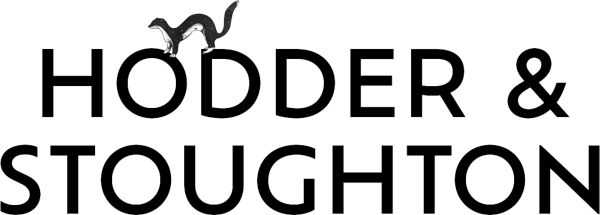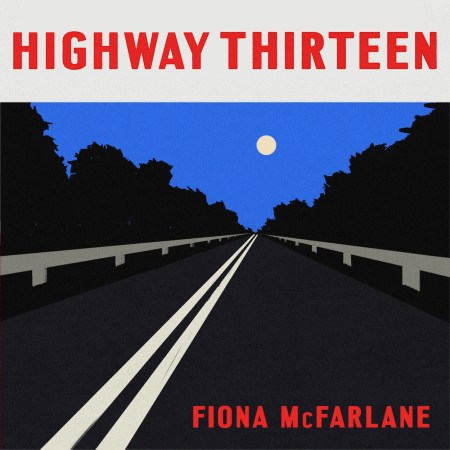‘This Möbius strip of linked stories bends and twists the crime genre until it is barely recognisable . . . The result is a riveting study of human nature’
GERALDINE BROOKS, author of Horse
In 1998, an apparently ordinary Australian man is arrested and charged for a series of brutal murders. The news shocks the nation, bringing both horror and resolution to the victims’ families, but its impact travels even further: into the past, as the murders rewrite personal histories, and into the future, as true crime podcasts and biopics tell the story of the crimes.
From the killer’s childhood town to Texas, Rome and beyond, from the mid-twentieth century to the near-future, Highway Thirteen asks how do communities make sense of such atrocities? How does the mourning of families sit alongside the public fascination with terrible crimes? And can we tell true crime stories without centring the killers?
GERALDINE BROOKS, author of Horse
In 1998, an apparently ordinary Australian man is arrested and charged for a series of brutal murders. The news shocks the nation, bringing both horror and resolution to the victims’ families, but its impact travels even further: into the past, as the murders rewrite personal histories, and into the future, as true crime podcasts and biopics tell the story of the crimes.
From the killer’s childhood town to Texas, Rome and beyond, from the mid-twentieth century to the near-future, Highway Thirteen asks how do communities make sense of such atrocities? How does the mourning of families sit alongside the public fascination with terrible crimes? And can we tell true crime stories without centring the killers?
Newsletter Signup
By clicking ‘Sign Up,’ I acknowledge that I have read and agree to Hachette Book Group’s Privacy Policy and Terms of Use
Reviews
PRAISE FOR FIONA MCFARLANE'S THE SUN WALKS DOWN
'Steinbeckian Majesty'
SUNDAY TIMES
'Moving and masterful'
DAILY MAIL
'Brilliant, fresh and compulsively readable'
ANN PATCHETT
'I can't think of another writer working today who I admire more'
KEVIN POWERS
These sublime stories have the poise and clarity of classics. As Fiona McFarlane's characters edge towards revelation or disaster, her artistry shines on every page
In Fiona McFarlane's gifted hands, this Mobius strip of linked stories bends and twists the crime genre until it is barely recognisable . . . The result is a riveting study of human nature
McFarlane expands our understanding, illuminating what it is to be human . . . compulsory reading for anyone who's ever read (or written) a tale of murder
McFarlane is a ventriloquist in these brilliant stories, voicing our fear and fascination around atrocity, the shocking ordinariness of its perpetrators
Addictively engaging, profoundly serious fiction from an underappreciated master
A standout meditation on a community's legacy of violence
McFarlane serves up a slantwise approach to crime writing in this crisp suite of tales . . . clever and engrossing
McFarlane's imaginative and tonal range is astonishing; she presents an assortment of beautifully realised characters and settings, requiring us to consider the ripples that spread out from the killings over time. A few of the stories are almost unbearably suspenseful, but McFarlane's ethical restraint spares us all voyeuristic gore. She is, simply, a superb writer
An accomplished collection, stylish and lyrical in its prose and deeply sensitive in its characterization. The stories are richly layered, often turning back on themselves or in unexpected directions, and McFarlane's precision and craft are one of the great pleasures of the book
Reading Highway Thirteen is the literary equivalent of watching an eclipse: one must trace the shadow to see the spectacle . . . A masterclass in reflection and refraction. Fiona McFarlane is interested in what we choose to see and what we choose to ignore. It is easy to conjure up devils, demons and monsters - to spin blood-soaked tales of the murder forest. Far harder, she shows, is to face our own, "ordinary" backyard cruelties
McFarlane is a master at just about everything: dialogue, setting, comic timing . . . But her biggest accomplishment is creating an empathic bond with people whose lives are touched by unexplainable violence . . . McFarlane sets them off on journeys that are compulsively suspenseful and enormously readable
McFarlane delivers stories that are as complex as they are haunting . . . A thrilling collection that explores an uncanny restlessness haunting the Australian psyche. Its crystalline prose and keen observations about everyday life open up new ways of thinking about the historical crimes that underpin our collective unsettlement

